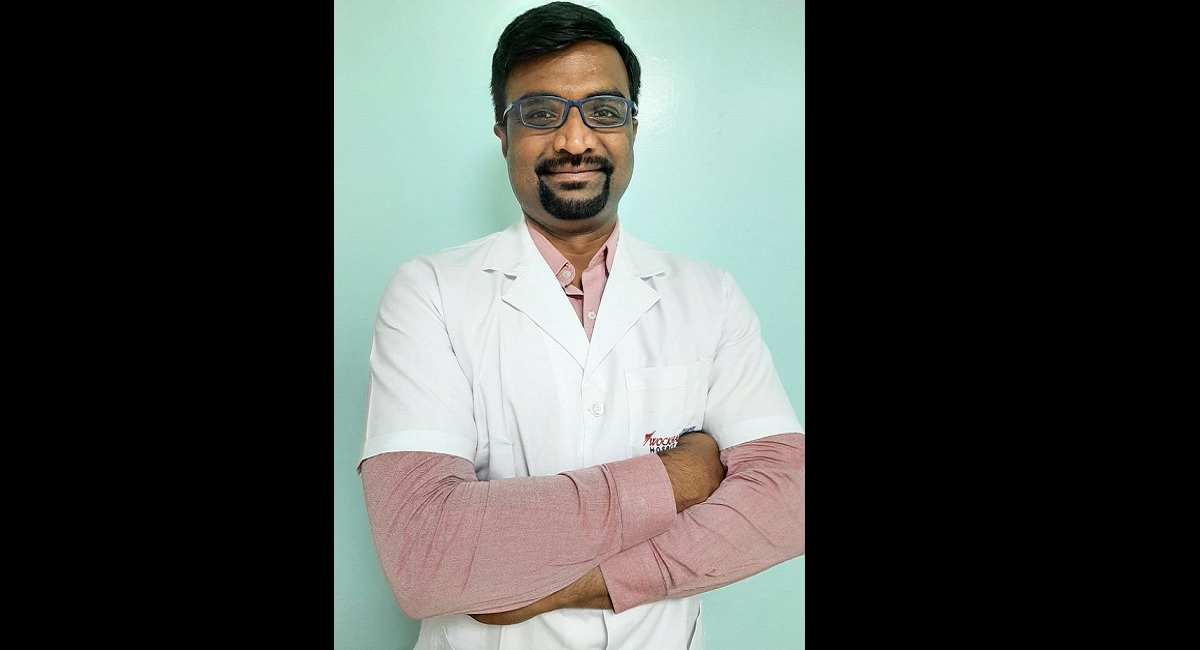Home » Speciality » Liver Transplant
LIVER TRANSPLANT
SURGERY
performed by top specialists.

Why choose Wockhardt Hospitals
for Liver Transplant?
We are a network of top multispeciality hospitals with a particularly significant presence in the western parts of the country. The liver transplant team at Wockhardt Hospitals is highly experienced and has done numerous liver transplants. We are regarded as one of the most extensive, multidisciplinary healthcare centers in India. We provide specialist care for conditions of the liver and pancreas and have some of the most advanced liver care facilities.
All forms of liver disease treatments are provided by our team of highly competent surgeons in collaboration with experienced doctors and other medical staff members. The hospital is the recommended healthcare facility for a large number of international patients traveling to India because of its leading-edge technology, abundant research resources, and best-in-the-world treatment alternatives.
Renowned Liver Transplant Surgeons
at Wockhardt Hospitals
- Mumbai Central
- Mira Road
- Nagpur
- Rajkot
What is a Liver Transplant?
A liver transplant surgery is a procedure in which a failing liver is removed, and either a healthy liver from a deceased donor or a part of a healthy liver from a living donor is used to replace it. It is a significant medical technique that has given thousands of people with debilitating liver diseases a new lease on life.
The prospect of a liver transplant is often only considered as a treatment for those with severe difficulties brought on by end-stage chronic liver disease. In rare circumstances where a previously healthy liver suddenly fails, liver transplantation may potentially be a life-saving option for treatment. The liver is the only organ in the body that can regenerate tissue that has been destroyed or damaged. After surgery, the donor’s and recipient’s livers will shortly re-grow to their original size within weeks.
When Do you Need a
Liver Transplant?
Patients with the following conditions may require a liver transplant:
- Alcoholic cirrhosis, liver damage due to alcoholism.
- Liver-related cancers, including hepatocellular carcinoma, hepatoblastoma, cholangiocarcinoma, etc.
- Primary biliary cirrhosis
- Aggressive infection that has persisted for a long time.
- Metabolic conditions connected to liver failure, such as Wilson's disease.
- The liver or bile ducts might be damaged during birth.
- Liver (hepatic) vein clot (thrombosis).
- Persistent, long-lasting infection (Hepatitis B or C).
- Ratol Poisoning
Depending on their level of disease, patients need inpatient care for one to four weeks after a liver transplant. Those who have had a liver operation must take restrictive medications for the rest of their lives to protect the immune system from refusing the new organ.
How do I Get Ready for a
Liver Transplant Surgery?

- Your concerned doctor will walk you through the process. Ask the surgeon any questions you may have regarding the procedure. You might be asked to sign a consent form authorizing the transplant procedure. Ask questions if anything on the form is unclear after carefully reading it. You must fast for eight hours before liver surgery if you are having a scheduled liver transplant. In many cases, this entails abstaining from eating or drinking after midnight. You shouldn't eat or drink after being informed that a liver is available if it comes from a donor who has recently passed away. Before the procedure, you can be given a sedative to help you relax.
The Liver Transplant
Treatment Procedure
The Liver Transplant Treatment Procedure
Before a choice is made about liver transplant surgery, each patient is properly evaluated. The assessment procedure comprises a thorough review of the level of liver disease, as well as the performance of other organ systems such as the heart, kidney, and lungs. General anesthesia is used during liver transplant surgery, so you’ll experience a sleep-like condition during the process. Your team will conduct medical examinations and enquire about your past medical history. They might consist of the following tests:
- A health check-up
- Blood and urine tests
- Tests known as imaging tests that provide images of the inside organs of your body.
- Tests to determine the functionality of your kidneys, heart, and lungs.
The medical staff will determine whether you are fit enough for the operation. The success rate of a liver transplant might be decreased by certain diseases or medical conditions. A transplant may not be possible for you if you have the following:
- A severe infection
- Alcohol or drug addiction issues
- Severe lung or heart disease
The outcomes of your evaluation will be looked over by the hospital’s selection committee. In the event that you are given the go-ahead for a transplant but do not have a living donor, your name will be added to the national waiting list for a deceased liver donor. The transplant team at Wockhardt Hospitals will contact you as soon as a matching liver from a dead donor is found and will instruct you on what to do prior to being admitted to the hospital.
If a family member, spouse, or friend wants to be a living donor, the liver transplant team will look to see if you and the person have compatible blood types and are of comparable body size. The transplant team will question the potential donor about his or her medical history. We shall conduct necessary medical testing to ensure that the individual is in excellent general health and does not have any serious medical or mental problems.
What Happens During a
Liver Transplant Treatment?
Deceased-donor liver transplant
If you are informed that a liver from a deceased donor is available, you will be admitted to the hospital and will be examined to ensure that you are healthy enough for the procedure.
It normally takes 8 to 10 hours to complete a liver transplant surgery. By cutting off the blood supply, the damaged liver is first removed. New connections are then created between the patient’s blood arteries and the new liver graft, which is subsequently implanted in the same location as the previous liver. Together with the patient’s bile duct, the liver’s bile duct is connected. Once one or two drains have been placed to remove any extra fluid that often collects following surgery, the area is then stitched up. The surgeon closes the surgical wound with stitches and staples after placing your replacement liver. After that, you are transferred to the critical care unit to start your recuperation process.
Living-donor liver transplant
If you are having a liver transplant from a living donor, your procedure will be arranged in advance. Surgeons initially operate on the donor, taking a part of the liver for transplant. The donated liver piece is then implanted in your body after your liver is removed. Doctors then link your blood vessels and bile ducts to the new liver. The transplanted liver component in your body and the piece left behind in the donor’s body recover quickly, reaching normal volume within a few weeks.
What happens after a
liver transplant treatment?
A liver transplant is a huge procedure for a patient who has been sick for a long time. Typically, the recipient is treated in the ICU for the first 3-4 days. During this time, he or she will get frequent blood tests and ultrasound scans to check that the liver is healing properly. The patient will be transported to the ward after he or she is stable. In the first several days following the liver operation, we advise the patient to sit up, practice deep breathing exercises, and gradually begin walking. The usual hospital stay following transplantation is roughly 2-3 weeks. After your liver transplant, you’ll need to take a variety of medicines. Throughout the rest of your life, you’ll need to keep taking a lot of these.
By the time the patient is discharged, he or she is able to eat regularly, walk easily, and require just a small amount of analgesic medicine. After your liver transplant operation, you should anticipate requiring at least six months of recovery time. A few months following liver surgery, you might be able to resume your regular activities or return to work.
How to Choose the Best Liver Transplant Hospital in India for your Liver Transplant?
You could encounter several hospitals with varying degrees of experience when looking for one that can properly care for your health. Making a wise option while selecting a liver transplant hospital is essential for patients who want a prompt and effective course of liver treatment. You can:
- Obtain recommendations by asking around people with similar situations.
- Check the Proximity to the Clinic.
- Explore the hospital’s performance and check the reviews
- Determine the Benefit of Your Insurance.
- Check if the hospital is laced with advanced technology and cutting-edge infrastructure to produce great success rates.
One of the top hospitals for the liver transplant in India is Wockhardt Hospital. We provide comprehensive and beneficial treatment and care to our patients. As a result, our patients return home on a happy and positive note, ready to resume their normal lives.
Liver Transplant Blogs
FAQs on Liver Transplant
Q. Will my liver disease come back after a transplant?
Q. Is liver surgery risky?
- Bleeding
- Blood Clots
- Infection
- Pneumonia
- Anesthesia-related complications
- Novel liver cancer
Q. How can you prevent liver transplant rejection?
Q. How long does it take to fully recover from a liver transplant surgery?
Q. Can you live a normal life after a liver transplant?
Q. What is the liver transplant success rate in India?
Q. How much does a liver transplant cost?
Q. What are the dos and don'ts before the liver operation?
| Dos | Don’ts |
|---|---|
| Take all the medications as directed. | Don’t consume alcohol at least 24 hours before the surgery. |
| Reach in time for the surgery to understand and perform any necessary preoperative measures. | Don’t hide any health issues you might have from the surgeon. |
| Follow the advice to eat less or nothing as asked by the doctor. | Don’t smoke for at least a week before the liver transplant. |
| Join the support group or talk to your family often about the transplant. | Don’t do anything that can affect your health negatively. |






























